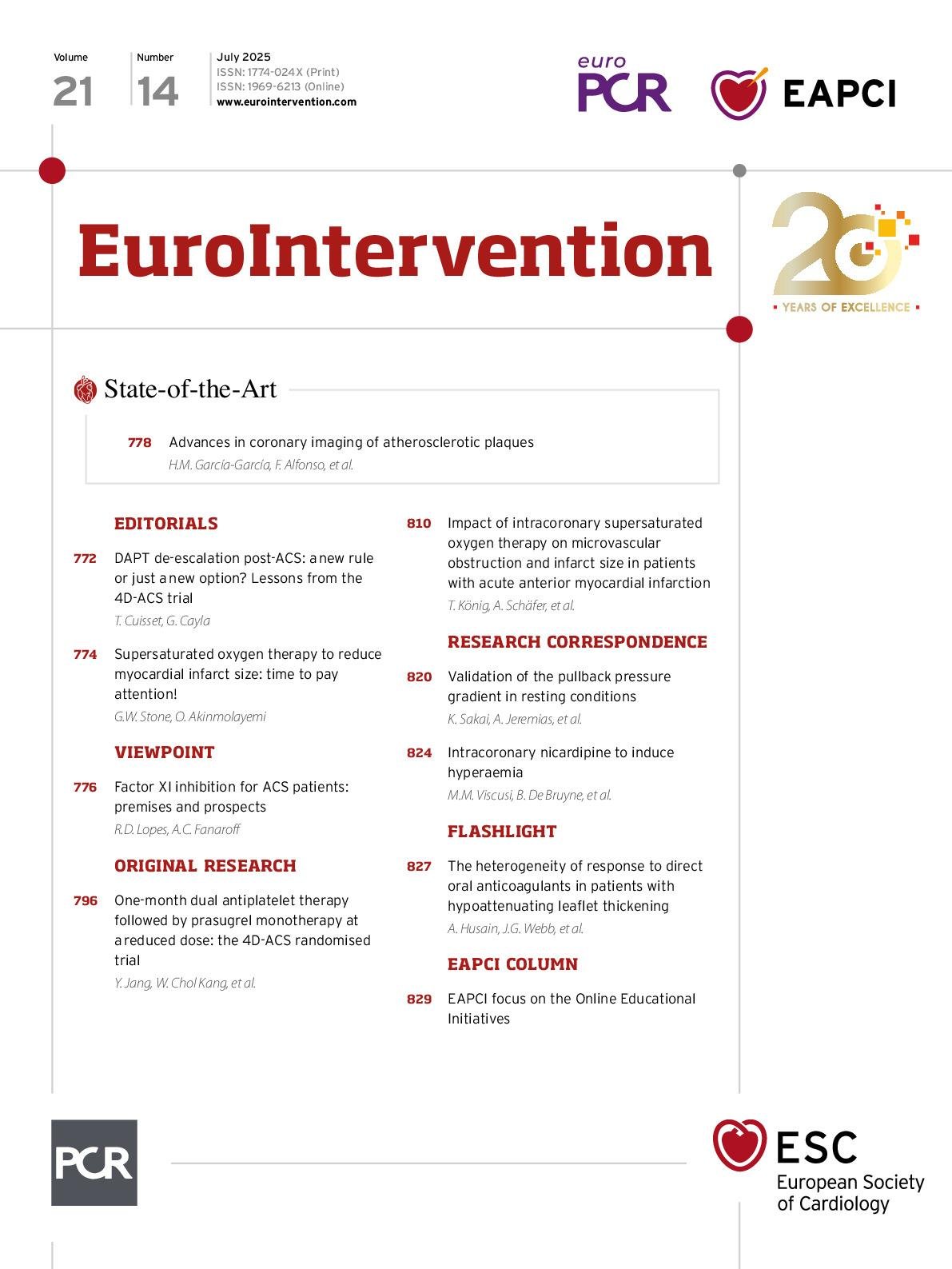The optimal management of dual antiplatelet therapy (DAPT) in patients presenting with acute coronary syndromes (ACS) undergoing percutaneous coronary intervention (PCI) remains a dynamic and evolving area of cardiovascular medicine. The key challenge lies in striking a delicate balance between ischaemic protection and the risk of bleeding complications1. The 4D-ACS trial contributes valuable insights to this ongoing evolution, advocating for an unguided, de-escalated approach to DAPT in ACS patients. This reflects the growing emphasis and evidence on individualised antiplatelet strategies, including de-escalation strategies2.
In this issue of EuroIntervention, Jang et al present the results of the 4D-ACS study, conducted in South Korea, which randomised 656 ACS patients immediately post-PCI to either a short DAPT regimen – 1 month of aspirin plus 10 mg prasugrel followed by prasugrel monotherapy at a reduced dose of 5 mg – or to a standard 12-month DAPT regimen with aspirin and prasugrel 5 mg daily3. All patients received a polymer-free, biolimus-coated stent (BioFreedom Ultra [Biosensors]). At the 12-month follow-up, the primary endpoint – net adverse clinical events (NACE), a composite of death, myocardial...
Sign up for free!
Join us for free and access thousands of articles from EuroIntervention, as well as presentations, videos, cases from PCRonline.com

